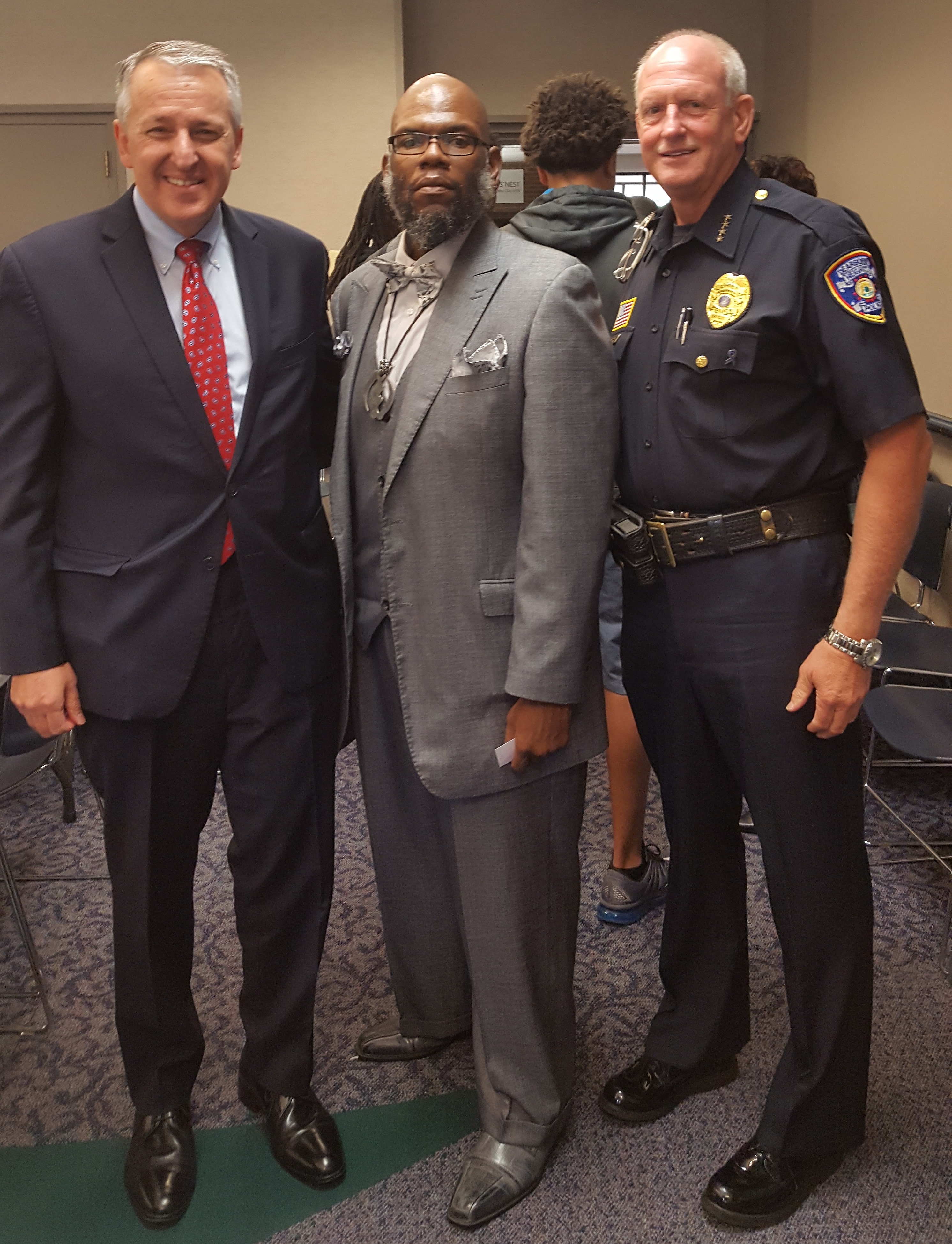Black Lives Matter at HFC
Gallery

In April 2015, 25-year-old African American Baltimore resident Freddie Gray died from injuries sustained while in police custody. His death fueled outrage in African Americans communities across the country and reinforced the Black Lives Matter movement. In the Baltimore Riots that followed, 19 police officers were injured, 200 people were arrested, and several cases of looting and extensive damage to property were reported. Six police officers were charged to answer for Freddie Grays’s death. Three of them were acquitted and all charges were recently dropped against the remaining three.
In the wake of the outcome of the Freddie Gray case, on Monday September 12, 2016, the Henry Ford College Black Male and QUEENS Focus Groups hosted a roundtable discussion with community leaders and various representatives of law enforcement agencies including local police chiefs and the FBI. The discussion forum was part of ongoing efforts by the Detroit division of the FBI Community Outreach initiative aimed at fostering better relations between law enforcement agents and the local communities within which they operate, specifically African American communities.
Why specifically focus on African American communities? Addressing the forum, Hester Wheeler, Executive Director of the Detroit branch of the National Association for the Advancement of Colored People (NAACP), said that focusing on African American communities and saying “black lives matter” does not mean that no other lives matter, but like a house on fire, it is simply calling for specific attention to that particular house.
According to The Counted, a project run by The Guardian, which compiles information on fatal force incidents involving law enforcement agents. In 2016 alone, there have been 761 police-involved deaths of civilians nationwide. Of the 761 people killed, 188 were black. Of that 188, 31 were unarmed. The statistics also indicate that of the 761 deaths nationwide, 372 were white and of that 372, 51 were unarmed.
Considering that African Americans make up 13.2 percent of the total population of the country, since January 2016, 4.68 in 1 million African Americans were killed in fatal force incidents involving law enforcement agents, whereas only 1.88 in 1 million white non-Hispanic or Latino Americans have been killed under the same circumstances. In addition, 13.7 percent of the 372 white non-Hispanic or Latino Americans killed were unarmed whereas 16.5 percent of the 188 black Americans killed were unarmed.
Responding to a question on diversity within the police force, Curtis Caid, Chief of Police of Livonia Police Department, said that as much as he would like to see diversity within the ranks of police officers in his department, the challenge is in recruitment. African Americans and other people of color do not seem to be interested in applying to be recruited.
Among the issues discussed was the possible de-escalation of racial biases through diversity training. Also discussed was preventing the escalation of events during police stops through collaborative public awareness efforts to ensure that the general public is aware of what not to do during a police stop.
Deon Davidson, a Henry Ford College student and a member of the Black Male and QUEENS Focus Group stated that though the representatives of the various law enforcement agencies had articulated the dynamics of addressing the biases within their departments, and outlined the measures they take to ensure that cultural diversity training is received, the question of holding police officers accountable for their actions still needs to be addressed.
For more information about the Black Male and QUEENS Focus Groups, please contact Prof. Kalvin Harvell at: kharvell@hfcc.edu.
